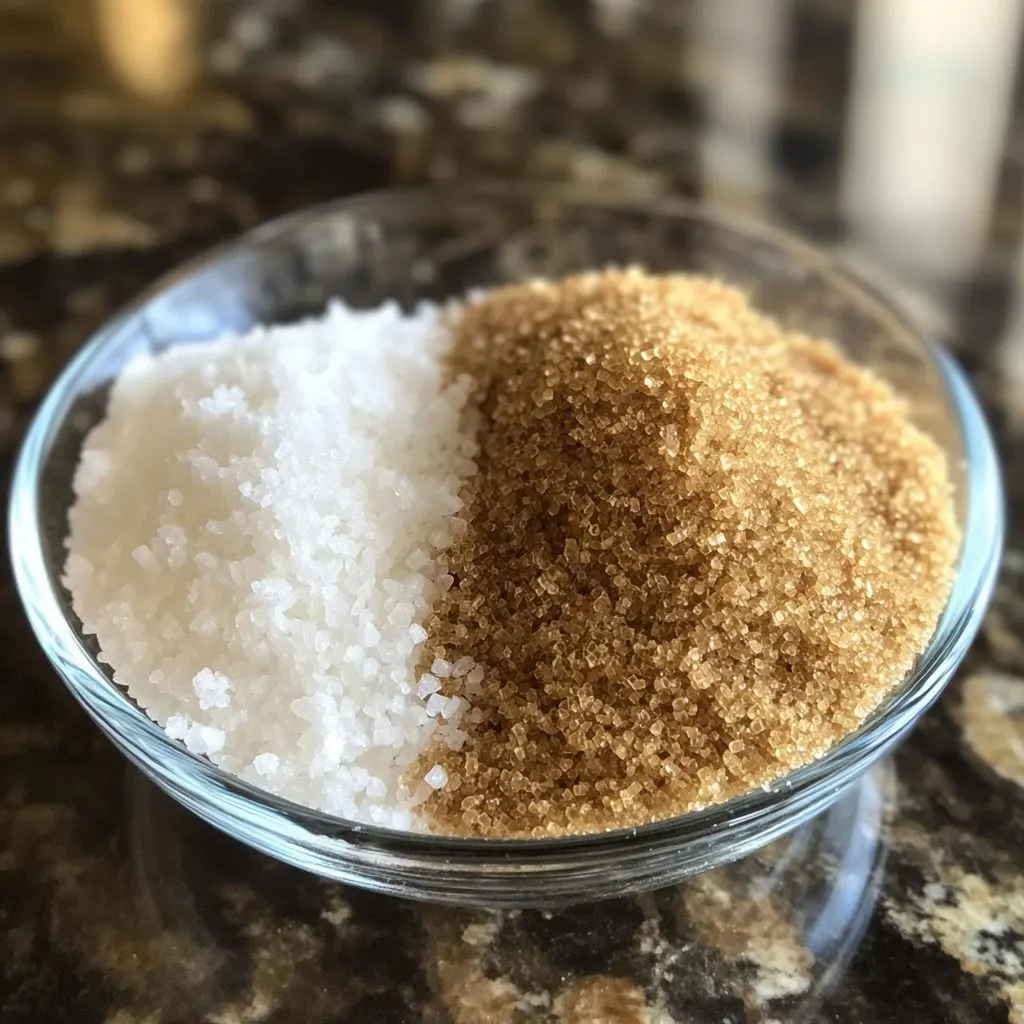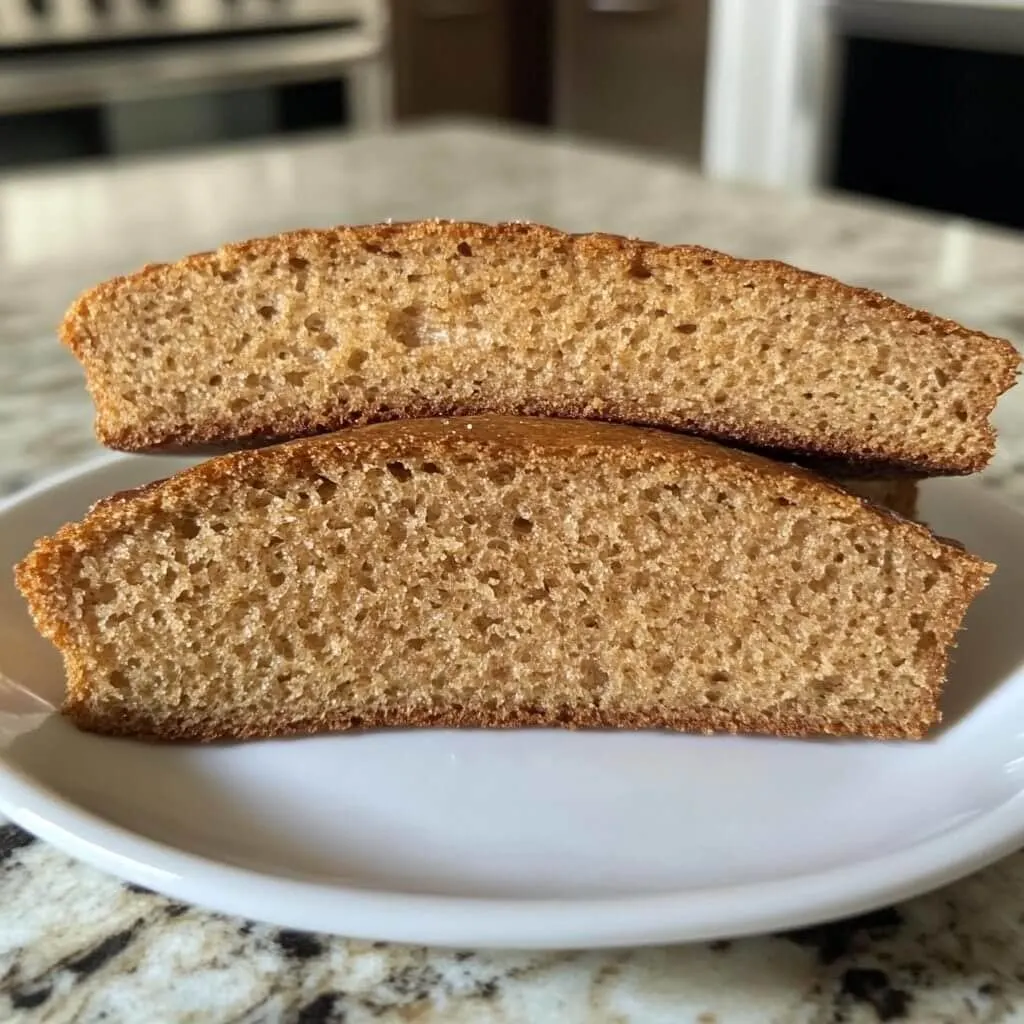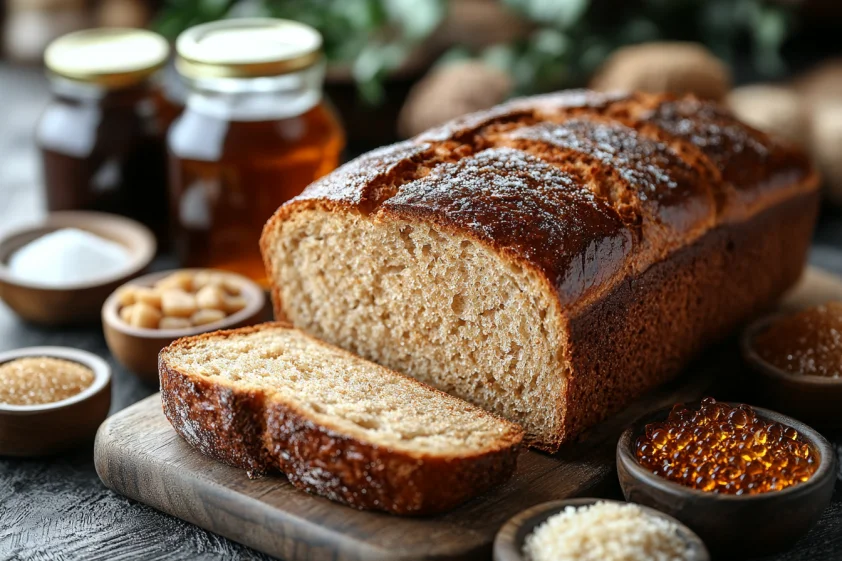Can I Substitute Brown Sugar in Bread? A Complete Guide
Baking requires precise ingredient choices, and one of the most common questions among home bakers is: Can I substitute brown sugar in bread? Whether you’ve run out of white sugar or want a richer, more caramelized flavor, understanding how brown sugar affects bread is essential.
Brown sugar is a popular alternative to white sugar due to its molasses content, which gives it a deeper flavor, higher moisture content, and a darker crust. But can I substitute brown sugar in bread without making adjustments? The answer depends on the type of bread and the desired texture.
Since sugar impacts yeast activation, moisture retention, and browning, using brown sugar instead of white sugar can affect dough consistency, proofing time, and crust color. If you’re wondering, Can I substitute brown sugar in bread and still get a light, fluffy texture?, the key lies in making small adjustments to the recipe.
In this comprehensive guide, we will explore how brown sugar affects bread dough, the best ways to substitute it, and what changes to expect when using brown sugar instead of white sugar.
Table of Contents
How Sugar Affects Bread Baking
If you’ve ever asked yourself, Can I substitute brown sugar in bread?, you should first understand sugar’s role in bread baking. Sugar does much more than add sweetness—it plays a vital role in yeast fermentation, moisture retention, and crust browning.
- Yeast Activation – Sugar is food for yeast, helping it produce carbon dioxide, which makes the dough rise. Brown sugar, with its molasses content, can slow down fermentation slightly compared to white sugar.
- Moisture Retention – Sugar traps water molecules, keeping bread softer and fresher for longer. Brown sugar enhances this effect due to its added moisture.
- Crust Development – Sugar caramelizes during baking, creating a golden-brown crust. Brown sugar results in a darker, richer crust due to its molasses content.
If you’re asking, Can I substitute brown sugar in bread without altering the texture?, the answer is yes, but expect a slightly different crumb and crust development.
White Sugar vs. Brown Sugar: What’s the Difference?

To understand why people ask, Can I substitute brown sugar in bread?, let’s look at the differences between white and brown sugar.
| Feature | White Sugar | Brown Sugar |
|---|---|---|
| Composition | 100% Sucrose | Sucrose + Molasses |
| Moisture Content | Low | High due to molasses |
| Sweetness Level | Slightly higher | Less sweet, deeper flavor |
| Effect on Texture | Light, airy | Slightly denser, moister |
| Effect on Crust | Lighter, crispier | Darker, softer crust |
The key takeaway: Can I substitute brown sugar in bread without changes? Not quite—slight recipe modifications may be needed.
How Brown Sugar Changes Bread Dough and Baking Results
Many people ask, Can I substitute brown sugar in bread without altering fermentation? The short answer is that brown sugar changes dough texture, proofing time, and crust color.
- Dough Consistency – Brown sugar makes the dough stickier due to its molasses content. If necessary, add 1-2 tablespoons of extra flour to balance the moisture.
- Fermentation Speed – The yeast fermentation process may take longer because brown sugar contains more moisture and minerals, slightly slowing yeast activity.
- Crust Browning – If you substitute brown sugar, expect a darker, richer crust. To prevent over-browning, reduce baking temperature by 5°F.
- Moisture & Texture – Brown sugar helps retain more moisture, creating a softer, slightly denser loaf.
If you’ve been wondering, Can I substitute brown sugar in bread and still get the same rise?, just adjust proofing time and hydration levels slightly.
Best Types of Bread for Brown Sugar Substitution

If you ask, Can I substitute brown sugar in bread for any recipe?, the answer depends on the type of bread you’re making.
- Classic White Bread – Brown sugar adds moisture and a deeper flavor, making it slightly denser.
- Whole Wheat Bread – Pairs well with brown sugar due to its nutty, rich flavor.
- Brioche & Enriched Bread – Works well in high-fat doughs, adding extra softness.
- Cinnamon Rolls & Sweet Breads – Brown sugar is the preferred choice due to its caramelized flavor.
- Sourdough – Not recommended, as brown sugar can slow fermentation.
So, Can I substitute brown sugar in bread without ruining the loaf? Absolutely—just choose the right bread type for brown sugar’s effects.
How to Properly Substitute Brown Sugar in Bread
For those asking, Can I substitute brown sugar in bread without making mistakes?, follow these steps:
- Use a 1:1 Ratio – Brown sugar can replace white sugar directly.
- Reduce Liquid Slightly – Since brown sugar contains moisture, decrease water or milk by 1-2 tablespoons.
- Dissolve Brown Sugar First – If proofing yeast, dissolve brown sugar in warm water before adding it to the dough.
- Lower Baking Temperature – Reduce the oven temperature by 5°F to prevent over-browning.
Frequently Asked Questions
Can I use brown sugar instead of regular sugar in bread?
Yes! Brown sugar can replace white sugar, but expect a richer, moister loaf.
What does brown sugar do in bread?
It enhances moisture, softness, and caramelization, making the bread more flavorful.
What can I substitute for sugar in a bread recipe?
Honey, maple syrup, coconut sugar, and artificial sweeteners like stevia or monk fruit can be used.
What is the best sugar for bread?
White sugar is best for light, airy bread, while brown sugar is ideal for moist, soft loaves.
Conclusion
So, Can I substitute brown sugar in bread? Yes, but with adjustments! Brown sugar enhances flavor, moisture, and texture, making it an excellent alternative in many bread recipes.
If you enjoy softer, more flavorful bread, brown sugar is a great substitute for white sugar. However, if you prefer a lighter, crispier crust, white sugar might be a better option. Making small adjustments to hydration, fermentation, and baking time ensures the best results.
The next time you wonder, Can I substitute brown sugar in bread?, remember that while it’s a great swap, understanding its effects on dough structure, crust development, and proofing time will help you achieve the perfect loaf.
For more baking tips, check out our expert guide on sugar alternatives for baking here.

